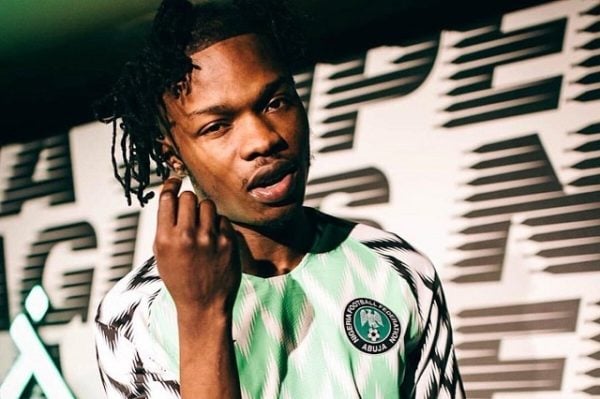Naira Marley, Nigerian singer, says he ventured into music after making £250,000, his first big money, in England.
The controversial singer disclosed this when he featured on an episode of ‘The Truth‘ a YouTube series, pioneered and hosted by Olisa Adibua, Nigerian media personality.
Zinoleesky, Mohbad and C-Blvck, three of the four artists on ‘Marlian Records‘, his own record label, also featured alongside him.
Speaking during the interview, Naira Marley said that his original plan was to invest in talents around him and help them explore their potentials, while also making profit.
He, however, said such mindset changed when he made £250,000 after which he went into the studio and eventually started his music career.
“I didn’t even mean to go into the studio. My plan was to invest in people freestyling around me because they were so talented,” he said.
“So eventually, we went into the studio, we had so much time and they made lots of records, you know. But we had too much time on our hands, I made just one song.
“By the time we left the studio; imagine we had 10 songs, but it was my song that everybody was singing, so I was just baffled, you know. People kept forcing me to send them the song… Everyone around me already knew the lyrics. So, one day we were chilling when one of my friends with a camera told me to shoot a video (for the song) with the camera.
“We shot the video unplanned and it had like four million views in three weeks. Basically, that’s how I got into music and I can’t stop.”
He, was however, unclear as to how he made the £250,000.
“I was picking money on the streets in England, it was so easy,” he said when asked how the money came about.
When probed further if he money was legal or illegal, he said “I was doing mad things.”
Marley was recently named Nigeria’s most-viewed artiste on YouTube for the year 2019, beating the likes of Davido, Burna Boy, Wizkid, Teni and Zlatan among others.
The street singer has amassed a deluge of diehard fans — comprising both old and young — ever since his legal battle with the Economic and Financial Crimes Commission (EFCC) over cyber crime allegations.
Copyright 2025 TheCable. All rights reserved. This material, and other digital content on this website, may not be reproduced, published, broadcast, rewritten or redistributed in whole or in part without prior express written permission from TheCable.
Follow us on twitter @Thecablestyle

